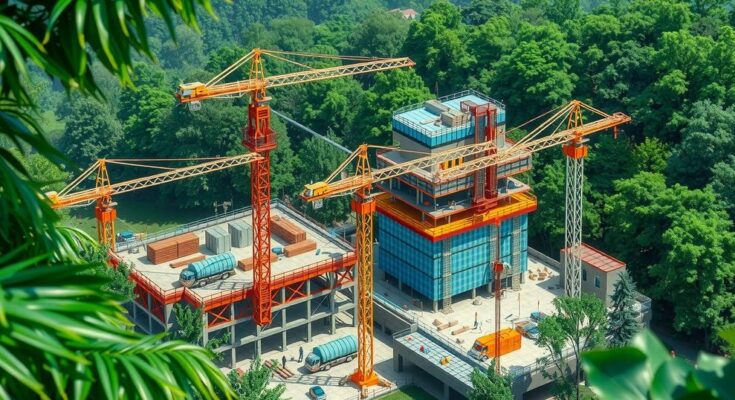Dr. Patrice Motsepe, newly re-elected CAF president, urges African governments to invest in football infrastructure, highlighting its necessity for hosting international matches. He asserts that improving facilities benefits both sports development and economic advancement, despite existing financial constraints faced by many countries. Eswatini is set to host qualifiers for the 2026 FIFA World Cup, exemplifying the importance of adequate sporting venues.
On March 17, 2025, Dr. Patrice Motsepe was re-elected unopposed as the President of the Confederation of African Football (CAF). He has fervently urged African governments to allocate resources toward enhancing football infrastructure, as inadequate facilities hinder nations from hosting international matches. Motsepe highlighted that many stadiums do not meet FIFA and CAF requirements, obstructing the growth of the sport continent-wide.
This week, Eswatini will host qualifiers for the 2026 FIFA World Cup, showcasing the need for proper facilities as the nation prepares to compete in Mbombela Stadium, South Africa. Motsepe acknowledged the financial constraints faced by various governments, as many prioritize loans and essential services over sports infrastructure. He stated that investing in football can yield significant economic advantages.
Motsepe emphasized the necessity of establishing infrastructure to elevate football standards in Africa, enabling nations to compete on a global level. He recognized the divergence within African football, where some countries thrive in competition while others struggle due to governmental funding limitations despite a passionate fan base.
Dr. Patrice Motsepe’s calls for increased investment in football infrastructure reflect a pressing need for African governments to prioritize sports development. By enhancing stadium facilities and supporting local teams, nations can not only improve their competitive standings but also contribute to overall economic growth. The upcoming World Cup qualifiers underscore the crucial relationship between sports and infrastructure investment.
Original Source: new.observer.org.sz




